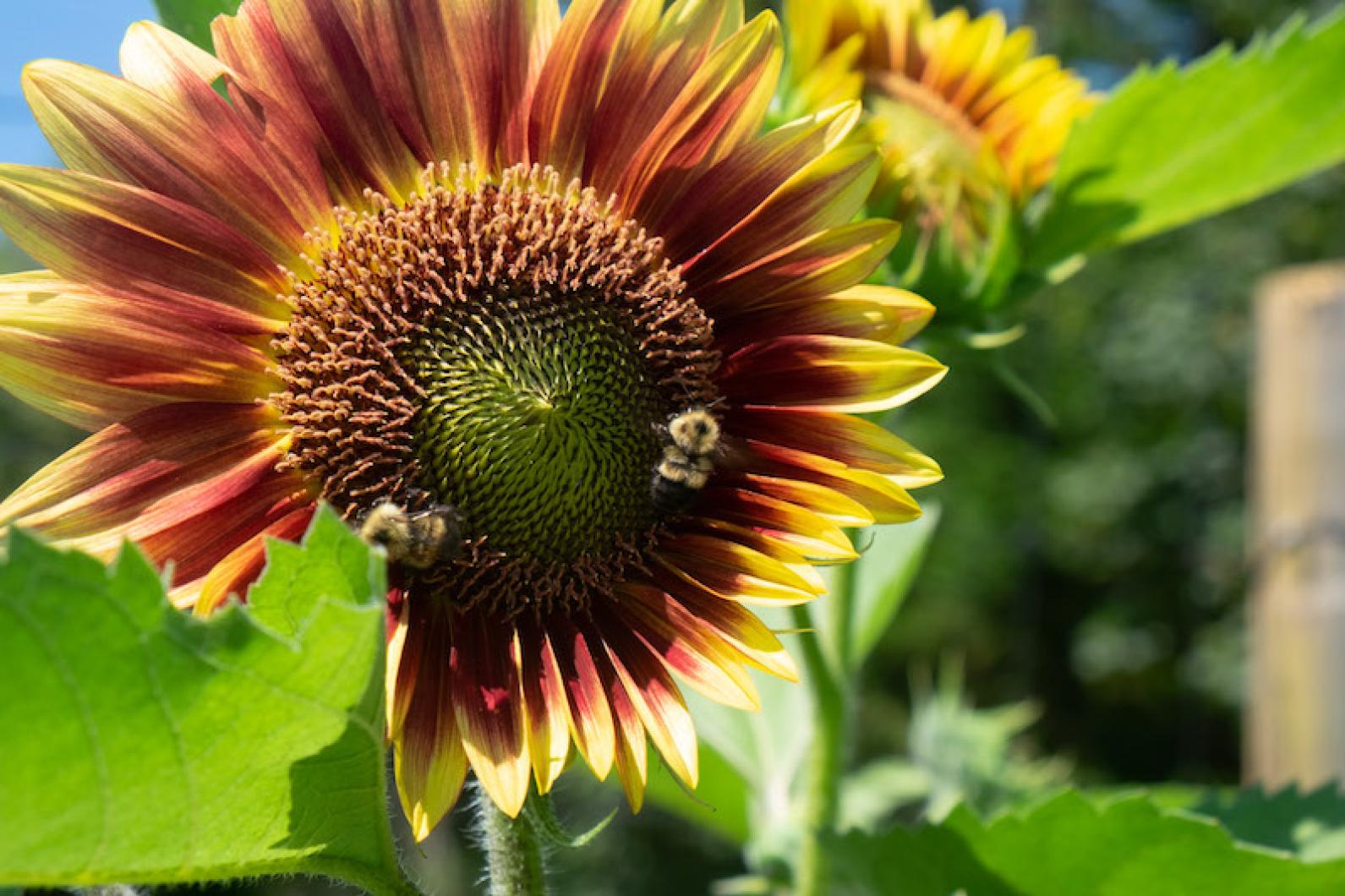Every farmer has a favorite crop.
Some are reluctant to name just one, like a mother who does not want to play favorites. Others, like Ethan Buchanan-Valenti, crop manager at the Grey Barn and Farm in Chilmark, know the answer immediately. “Alliums,” he says without hesitation.
His love shows. I caught him on the first morning of the fair just as he was dropping off his prize alliums for judging: yellow, white and pink onions with softball-sized bulbs and leeks with sturdy white stalks and deep green tops. Alliums thrive in manure and compost-rich soils like those found at Grey Barn, where, given enough water and warmth, they bulb-up into a healthy harvest. Ethan’s favorite varieties to grow include Walla-Walla sweet onions, Rossa pink onions, Cortland yellow onions and Whitwing white onions.
Rebecca Sanders, the garden manager at the Farm Institute, has to think a little harder about her favorite crop, but lands decidedly on flowers. She favors the edible and medicinal varieties: calendula, borage, nasturtiums. She interplants them with her vegetables, welcoming the bursts of color as well as the pollinators they bring to the garden. She likes that they are low-maintenance, producing blooms for weeks at a time, blessing her field with beauty and biodiversity all season long.
Rebecca also loves growing sunflowers. This year, along with the help of farm-hand Emma Cutler and tractor work from Morning Glory Farm, Rebecca planted an entire acre of sunflowers in the Katama fields. Fifty rows were seeded in varieties with names like Rouge Royale, Gold Rush and Sunshine. They have now been growing for weeks. As they grow, sunflowers follow the arc of the sun from dawn to dusk, turning their heads with the passing daylight. The Katama acre is beginning to bloom, heavy heads on thick stalks, just in time for the Farm Institute’s flower festival coming up on August 24.
Sometimes farmer’s favorite crops are not the ones you would expect. Morning Glory is known for its sweet corn — customers flock to the farm stand from July through October just to bring home a few irresistibly sweet ears for dinner. Yet, when you ask Simon Athearn, chief of operations at Morning Glory, what his favorite crop is, he makes an unexpected choice: English peas.
“If you take really good care of them, they perform amazingly,” says Simon.
Over the years he has learned the trick to a healthy crop. First, do not plant the seeds too early. It can be tempting to sow them as soon as the ground can be worked, but Simon has found that this often causes the seeds to rot before they can germinate. Secondly, it is important to keep the beds weed free. At Morning Glory, Simon uses the tractor to perform what is called a blind-cultivation the day before the peas germinate, eradicating the first flush of weeds when they are barely visible in the bed. Finally, do not disturb the plants unnecessarily by trellising them. To avoid this, Simon plants shorter varieties, like Green Arrow, that are heavy producers on shorter vines.
If all goes well, you will be rewarded with a strong harvest of a crop that you cannot buy at most supermarkets.
As for me, I love growing melons. The vines are beautiful and overwhelming. They are always taking up more field space than I anticipated, reaching into neighbors beds and threatening to shade out other crops. I admire their robustness, particularly on our sandy soils where crops usually struggle to become lush.
We wait impatiently for the signs of ripeness in our watermelon patch: the death of the first tendril closest to the fruit and a telltale “thump” when knocked. Sometimes we are premature, opening a melon that is white inside rather than the deep red or yellow of readiness. But once we get it right, nothing beats the satisfaction of a perfectly ripe watermelon, harvested and consumed in the field on a hot August morning. When melon season arrives, we always have a few halved-ones hanging about on the tailgate of the truck or on the wash station tables, ready for the farmer who needs a sweet snack.
My favorite watermelon variety is called Moon and Stars, named for its dark green skin speckled with little yellow dots, resembling the nighttime sky.
The favored crops are rarely the money makers. Our melon plantings probably lose money. The plants take up so much space in our limited field and each plant only produces a few melons in a season. Yet, I will always continue to grow them. For in farming, a career that generates so little income and involves such hard work, it is important to hold onto all that you love.
Lily Walter is the owner of Slip Away Farm on Chappaquiddick.




Comments (2)
Comments
Comment policy »